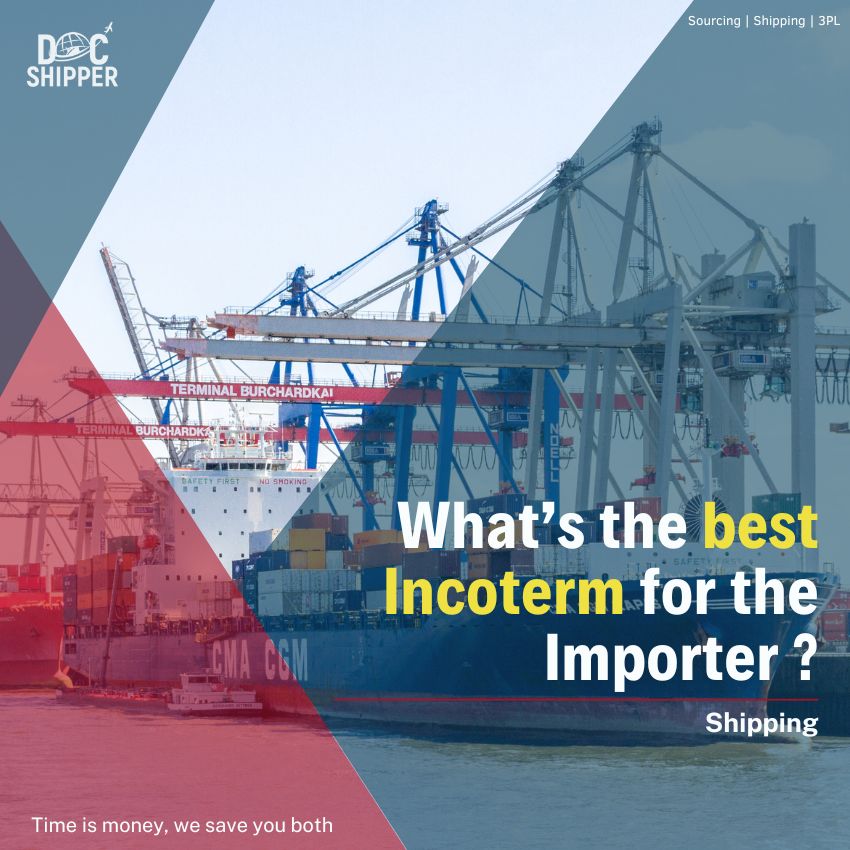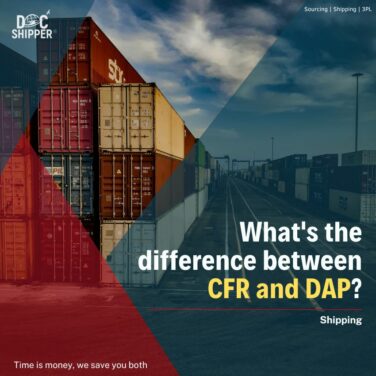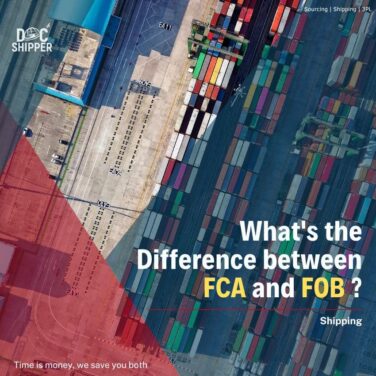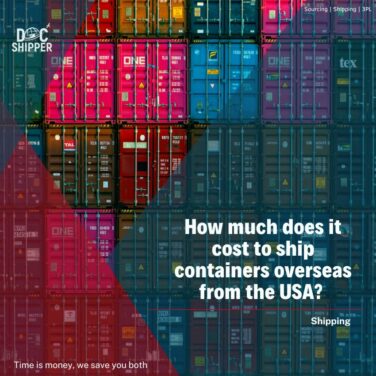When engaging in international trade, importers and exporters must establish clear terms and conditions for delivering goods. The International Chamber of Commerce (ICC) has developed standardized rules known as Incoterms (International Commercial Terms), which define both parties’ rights, responsibilities, and risks during the transportation and delivery processes. Selecting the most appropriate Incoterm is crucial for importers, as it affects the importation process’s overall cost, control, and risk management.
This article aims to provide determine the best Incoterm for importers. By understanding the key considerations and available options, importers can make informed decisions that align with their specific requirements and objectives.
DocShipper Alert
DocShipper Alert : 🚀 Discover DocShipper – Your international logistics partner! 🌍
Are you looking for an efficient logistics solution for your business? Look no further, DocShipper is here to support you in all your import-export operations!
Contact us today to discuss your needs and start turning your international ambitions into reality!
What is an incoterm ?
Incoterms are 11 rules established by the International Chamber of Commerce (ICC) to facilitate international transactions. They consist of a three-letter acronym followed by the delivery address.
Incoterms specify the responsibilities and payment management between sellers and buyers in the shipping process, including transportation, insurance, customs clearance, and risk transfer. The address after the acronym determines the transition of responsibility. However, Incoterms do not cover goods’ identity, price, timing, payment methods, or liability for non-conforming delivery.
Understanding and using Incoterms is crucial for international transactions to avoid exploitation by others.
DocShipper Info
DocShipper info: If two suppliers give you nearly identical prices, but one quotes EXW shipping terms and the other quotes CIF, the second quote will cost you much less.
At Docshipper, we work closely with our customers to understand their specific needs and provide them with the best shipping options. Contact us to find out how we can help you.
EX Works (EXW): The best Incoterm if you want to have full control over the logistics process and the choice of a forwarder
EXW (Ex Works) Incoterm is a trade term used in international contracts to define the obligations and responsibilities of the seller and the buyer in the delivery of goods.
- Seller’s responsibilities: The seller must make the goods available to the buyer at its own premises or at an agreed-upon designated place, such as a factory or warehouse. The EXW Incoterm does not specify a specific place of delivery, so it is important to specify this in the sales contract. The seller is responsible for preparing the goods for export, including customs export formalities.
- Buyer’s Responsibilities: The buyer assumes all costs and risks associated with the transportation of the goods from the named place to the final destination. This includes import customs formalities, freight charges, insurance, customs duties, and other applicable taxes.
Delivered at Place (DAP): The best Incoterm for importers who have never imported goods or who have little experience
DAP stands for “Delivered at Place”. When a seller and a buyer opt for the DAP Incoterm, the seller is responsible for delivering the goods to the agreed destination, ready to be unloaded from the means of transport used. The seller is responsible for the costs and risks associated with the primary transportation to that point.
- The seller is responsible for arranging and paying for the primary transportation of the goods to the agreed-upon destination. This may include transportation by land, sea, air, or multi-modal, as agreed upon by the parties.
The seller is responsible for customs export formalities, such as the preparation of export documents, customs declaration, and payment of export duties and taxes.
- Buyer is responsible for customs import formalities, including customs declaration, payment of import duties and taxes, and all other customs requirements of the country of destination. Once the goods are delivered to the agreed destination, the buyer is responsible for unloading the goods from the means of transport used.
By choosing the DAP Incoterm, the buyer benefits from the responsibility and costs of the main transport being borne by the seller to the specified destination. This provides the buyer with greater convenience and control over logistics operations while minimizing transportation risks.
Free On Board (FOB): The best Incoterm If you want to have direct control over the shipment of goods from the port of shipment.
In the case of FOB, the seller (the exporter) has several key responsibilities. First, he takes care of all customs duties in his country of origin. This is an advantage for importers who are not familiar with the customs laws of the country where they are purchasing.
- Seller’s responsibilities: The seller is responsible for delivering the goods on board the vessel designated by the buyer to the agreed port of shipment. The seller must bear the costs and risks until the goods are loaded onboard the vessel.
- Buyer’s Responsibilities: The buyer is responsible for the costs and risks associated with the transportation of the goods from the port of shipment. This includes freight charges, insurance, customs duties, and other applicable taxes, and customs import formalities.
It is important to note that the FOB Incoterm is generally used for ocean and river shipments, and there may be regional variations and specific trade practices that apply.
Cost and Freight (CFR) and Cost, Insurance, and Freight (CIF): The best Incoterm if you want the seller to pay for transport and insurance costs
Cost and Freight (CFR) and Cost, Insurance and Freight (CIF). These two Incoterms divide the responsibilities between the buyer and the seller into two equal parts.
- CFR (Cost and Freight): The seller is responsible for paying the cost of transporting the goods to the agreed-upon port of destination, but the buyer assumes the additional risks and costs associated with the arrival of the goods in the destination country.
- CIF (Cost, Insurance and Freight): The seller is responsible for paying the cost of transportation and insurance of the goods to the agreed-upon port of destination, while the buyer assumes the additional risks and costs from the time the goods are delivered to the vessel.
It is important to note that in both cases, the seller is responsible for arranging and paying for the main transport of the goods to the agreed port of destination. However, the responsibilities and costs differ with respect to the arrival of the goods in the country of destination. Under CFR, the buyer assumes these responsibilities, while under CIF, the seller also assumes insurance for the goods during transport.
DocShipper Tip
Docshipper Tip: Don’t let customs formalities get in the way of your international trade. Trust our team of experienced DocShipper experts to handle all the paperwork, both at the origin and destination, saving you time and hassle. Get a personalized quote now and simplify your global business operations.
FAQ | What's the best Incoterm for the Importer?
Read more
Looking for more? These articles might interest you:
DocShipper info: Do you like our article today? For your business interest, you may like the following useful articles :
Need Help with Logistics
or Sourcing ?
First, we secure the right products from the right suppliers at the right price by managing the sourcing process from start to finish. Then, we simplify your shipping experience - from pickup to final delivery - ensuring any product, anywhere, is delivered at highly competitive prices.

Fill the Form
Prefer email? Send us your inquiry, and we’ll get back to you as soon as possible.
Contact us










